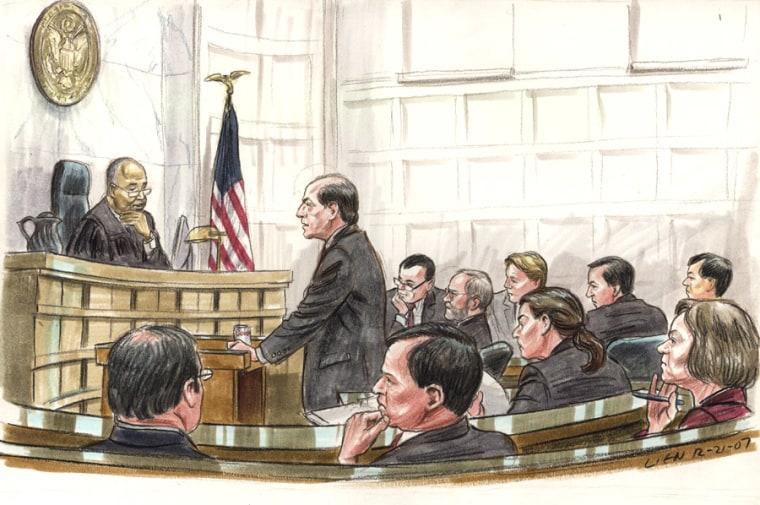A federal judge appeared reluctant Friday to investigate the destruction of CIA interrogation videotapes while the Justice Department is conducting its own inquiry.
U.S. District Judge Henry H. Kennedy is considering whether to delve into the matter and, if so, how deeply. The Bush administration is urging him to back off while it investigates.
"Why should the court not permit the Department of Justice to do just that?" Kennedy asked at a court hearing.
The hearing marked the first time that administration lawyers spoke in public and under oath about the matter since the CIA disclosed this month it destroyed the tapes of officers using tough interrogation methods while questioning two al-Qaida suspects.
Government lawyer Joseph Hunt said the joint Justice Department-CIA investigation into the destruction of the videos will also seek evidence of whether the government violated any court orders. Hunt promised the judge that, when the investigation is complete, lawyers will tell the court if its rules were violated.
"It would be unwise and imprudent" for the judge to investigate further, Hunt said.
'We have a smoking gun'
The judge had ordered the government not to destroy any evidence of mistreatment or abuse at the Navy base in Cuba. Because the two suspects - Abu Zubaydah and Abd al-Rahim al-Nashiri - were being held overseas in secret CIA prisons, however, they are likely not covered by the order.
David Remes, a lawyer for Yemeni detainees at Guantanamo Bay, argues the destruction of the tapes may have violated a court order and may indicate that other evidence was also destroyed. Remes noted that the government was prohibited from destroying any evidence that could be relevant in a case, even if not directly noted in a court order.
"We have a smoking gun, as it were, with respect to the government's destruction of potentially relevant evidence," Remes said.
Remes urged the court not to take a back seat to the executive branch, which destroyed the documents in the first place.
"The Justice Department may have sanctioned the destruction of these videotapes," attorney David Remes said. "Now they are asking the court to stay out, on the ground it is investigating the destruction of these videotapes."
Kennedy, who was appointed to the bench by President Clinton, did not immediately say what he would do. A former prosecutor, he said it was the Justice Department's job to investigate crimes and appeared reluctant to interfere with that process.
The Justice Department is particularly concerned that Kennedy will order government officials to testify in the case. Such an overlapping investigation could hinder or even torpedo an ongoing criminal investigation, government attorneys said.
Remes said he has no plans to ask for such testimony but would not rule it out. Specifically, he named senior Bush administration officials who reportedly were involved in discussions about the tapes: Alberto Gonzales and Harriet Miers, both former White House counsels; John Bellinger, then a lawyer at the National Security Council, and David Addington, a senior adviser to Vice President Dick Cheney.
